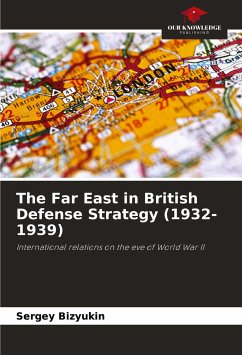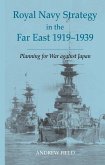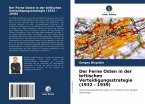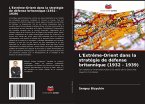The Pacific is now becoming an important arena where the interests of the world's leading powers once again intersect. Five of the G8 powers (China, the United States, Russia, Japan and Canada) are Pacific states. The United Kingdom, with its centuries-long experience in successfully pursuing a Far East policy, has not stood idly by in the face of the region's most important problems. Meanwhile, the increase of new threats to universal security, aggravation of the situation around North Korea, Taiwan and some other traditional "hot spots" in the APAC prompt historians to turn to the study of already existing acute crises in international relations, especially the period of World War II and the time that led to its conception. The diplomatic legacy of Britain, as one of the most sophisticated and interested players on the world stage in the 1930s, is naturally of particular interest. The author gives a sufficiently qualified analysis of the changes in the balance of power in the Asia-Pacific region in the pre-war decade. The author's conclusions may be of practical importance for the development of foreign policy strategy and tactics.
Bitte wählen Sie Ihr Anliegen aus.
Rechnungen
Retourenschein anfordern
Bestellstatus
Storno








